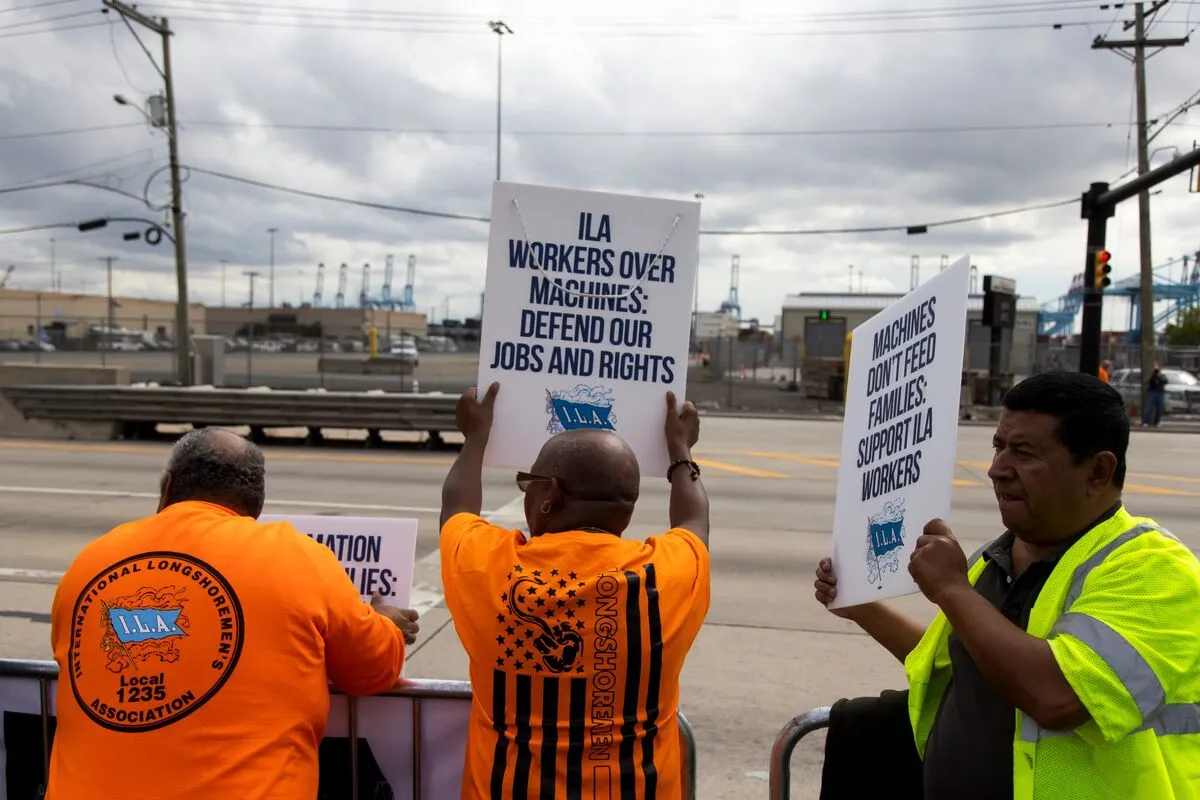Automation Drives Dockworkers Strike Amid Global Job Concerns

Automation Fuels Tensions Among US Dockworkers
Dockworkers along the East Coast and Gulf coasts have initiated a strike for the first time since 1977. This significant action emphasizes their resistance to automation technologies that threaten traditional jobs, mirroring trends observed in Europe and Asia.
Impact of Automation on Jobs
The rise of autonomous vehicles and advanced cargo handling technologies has raised alarms. Workers fear that these innovations will disrupt job security across the industry.
- Longshoremen express concerns about economic impacts.
- The strike reflects deeper issues regarding government policies.
- Many dockworkers are advocating for better regulations on automation.
Global Trends in Automation
Across Europe and Asia, automation has already changed the labor landscape, prompting US dockworkers to take a stand against similar developments in Alabama and beyond.
- Strikes could influence future government actions.
- Industry experts warn of potential job losses without intervention.
- Long-term shifts in work will require careful consideration of economic factors.
As the effects of automation continue to unfold, dockworkers emphasize the urgent need for discussions on how to balance technology with human labor. This strike serves as a pivotal moment in shaping the future of work in the cargo sector.
This article was prepared using information from open sources in accordance with the principles of Ethical Policy. The editorial team is not responsible for absolute accuracy, as it relies on data from the sources referenced.